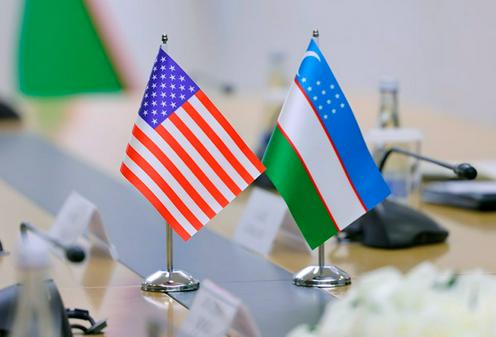Uzbekistan is in talks with the U.S. Department of Agriculture (USDA) and the U.S. Cotton Association to import American cotton under the GSM-102 credit guarantee program, the Ministry of Investment, Industry and Trade (MIIT) reported following a July 23–29 delegation visit to the United States.
During the trip, MIIT representatives discussed terms for cotton imports, increasing the credit limit, and launching the Made from U.S. Cotton initiative — aimed at expanding exports of Uzbek-made goods produced from American raw materials.
In addition to cotton, the two sides discussed boosting exports of Uzbek textiles, building materials, electrical products, and agricultural goods, particularly in the context of entering the Amazon marketplace and major U.S. retail chains, including Walmart.
While in New York, the delegation attended the Texworld NYC, Apparel Sourcing USA, and Home Textiles Sourcing Expo trade shows, where, for the first time under the unified Made in Uzbekistan brand, 25 Uzbek textile companies were showcased. Delegates held talks with companies such as Bunzl plc, Levi Strauss & Co., PVH Corp., G-III Apparel Group, Kontoor Brands, American Eagle Outfitters, Tapestry Inc., Macy’s, as well as with industry associations AAFA and USFIA. Discussions focused on pathways for Uzbek producers to enter the U.S. market and mechanisms for placing orders using the international sourcing system.
Separate talks with the U.S. Department of Commerce addressed developing bilateral trade, reducing barriers, and expanding investment cooperation. An agreement was reached with the Commercial Law Development Program (CLDP) to hold joint workshops for Uzbek companies on product certification and packaging to meet U.S. market requirements.
The GSM-102 program is a U.S. government guarantee system that helps banks more safely finance purchases of American agricultural products by foreign clients, primarily from developing countries. By reducing creditor risks, the guarantees encourage banks to issue loans to buyers capable of paying in foreign currency. This enables the U.S. to expand agricultural exports across various categories: consumer-ready (such as fresh and frozen produce, meat, spices, wine, and beer), intermediate (hides, flour, paper products), and bulk commodities (grains, oilseeds, rice).
Cotton cultivation plays a key role in Uzbekistan’s agriculture and is a major source of employment. Under the country’s first president, Islam Karimov, cotton was considered a strategic sector, with hundreds of thousands of people from various fields mobilized annually for forced harvesting. Under President Shavkat Mirziyoyev, cotton’s strategic importance has declined, but the sector remains significant.
In recent years, authorities have focused on generating income not from exporting raw cotton but from selling higher value-added products — primarily textiles. A cluster system has been introduced in cotton production, and several hundred large textile factories have opened nationwide. While in 2017 only 40% of cotton fiber was processed domestically, today the figure is 100%. Authorities plan to increase textile exports to $4 billion by the end of 2025, $5 billion in 2026, and $7 billion by 2027.










